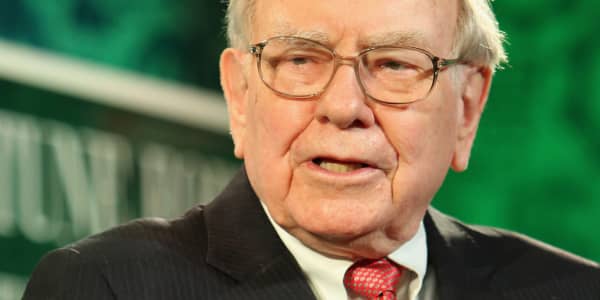Dividends have been a key focus for investors in the U.K. with companies deciding to slash, maintain or raise shareholder payouts during a disappointing earnings season.
The importance of a dividend - both as an enticement for investors in a low-return world and as a reflection of a company's financial health – was exemplified by the binary response of markets to earnings announcements from British banks last week.
On the day state-backed Lloyds declared a special dividend in addition to a boost in its ordinary dividend, its shares were rewarded with a 13 percent bump. In sharp contrast, RBS shares slid 7 percent as the bank warned it would likely defer the commencement of any capital distributions beyond the previously hoped-for first quarter of 2017.
With leading equity benchmarks tumbling in 2016, dividend yields have become increasingly attractive. The yield on the Euro Stoxx 600 has jumped by 40 basis points this year while the 's is up around 12 basis points, according to Thomson Reuters data. Meanwhile, analysts have lopped forecasts for first quarter-earnings deep into negative territory on both sides of the Atlantic, according to the Financial Times over the weekend.
Although some sectors – particularly energy and mining – have been hit by recently announced dividend cuts, these are yet to be reflected in the yield given it is a backwards-looking figure that uses dividends that company has already paid in the calculation. This has led some commentators to warn that investors need to be on the lookout for upcoming dividend cuts that may drive yields back down.
But, Oliver Russ, manager of two European income funds at Argonaut Capital, says the key for investors is successful differentiation.
"Dividend forecasts for this year in Europe have been under some pressure at an aggregate level, but this masks considerable underlying disparities between sectors," he said via email.
While indeed the most drastic payout reductions have made the biggest news, such as BHP's 74 percent dividend slashing and Anglo American's outright suspension, Russ urges investors not to tar all companies with the same brush.
"Commodity sector dividends have been under considerable stress, as projected future cash flows compress with commodity prices, leading to high-profile dividend cuts. Elsewhere though, the story is much brighter," he said.
While methods of cash distribution such as share buybacks can be altered without too much fanfare, boards are generally loathed to diminish announced dividend plans as investors take it as a sign of internal concerns about a company's balance sheet strength.
Worryingly, dividend coverage ratios – the ratio of earnings to dividends per share, considered a proxy for a company's ability to sustain its payouts – have tumbled globally. Indeed, the FTSE 100's coverage ratio sits at its lowest level this century; according to the Economist which cited data from the London Stock Exchange last month.
All of which suggests a return to basics and fundamental analysis is in order. A review of cash flow strength and forecasts may help investors to anticipate which companies' high dividend yields might signal a true bargain as opposed to an impending cut.
"Cash flows in excess of dividends has meant cash piling up on the balance sheet, which given perhaps a lack of appetite for further investment and ultra-low returns for keeping cash, means payout ratios can rise without taking excessive risks," Russ said.
Talib Sheikh, a multi-asset portfolio fund manager at JPMorgan Asset Management, says his team is constructive on the fundamental strength of a particular sector where yields have significantly risen this year as share prices have plummeted.
"Despite the recent sell-off, we continue to have a constructive view of financials. We believe financial institutions, such as insurance companies, asset managers, and banks, have significantly improved their balance sheets and capital ratios compared to pre-crisis levels."
Meanwhile, Ashok Shah, investment director at London & Capital, warned investors to keep a close eye on earnings to help determine dividend sustainability.
"In recent years analysts have started with very bullish expectations for corporate earnings growth which fade as months go by. This year expectations reduced quite quickly – from around 10 percent at the beginning of the year to only 4 percent now," he told CNBC last week.







